In this post, I will show you how to perform Cisco Jabber Installation using Intune MSI deployment guide. Here we will add the Cisco Jabber line-of-business app to Microsoft Intune and deploy it on Windows 10 or 11 devices.
Jabber unified communication software is available for Windows, macOS, and mobile devices. With Cisco Jabber, you can chat online, make voice and video calls, send voice messages, share your desktop, participate in conferences, and be present.
The presence of an installer makes it easier for you to find the right people, to see whether and how they are available, and to collaborate better.
The Jabber protocol, also known as XMPP, allows you to send chat messages. The Jabber client plug-in makes it easy for hackers, techies, and journalists to communicate with each other thanks to the ability to encrypt communications.
It provides real-time presence information and instant messaging, Global collaboration. Users can view the availability of contacts within and outside of their organization. Here’s how you can Download Cisco Jabber MSI Installers for Windows.
Cisco Jabber Installation Using Intune
Follow the steps below to upload the MSI file for deploying Cisco Jabber using Intune. To start with the Intune line-of-business app package creation, keep the downloaded Cisco Jabber MSI setup installation file in the appropriate location.
To upload the MSI file for deploying Cisco Jabber using Intune. Follow the steps below to start with the Intune line-of-business app package creation.
- Sign in to the Microsoft Intune admin center https://endpoint.microsoft.com/
- Here you have two options to jump into the Application creation. Select Apps > All apps > Add, or navigate to Apps > Windows > Windows Apps.
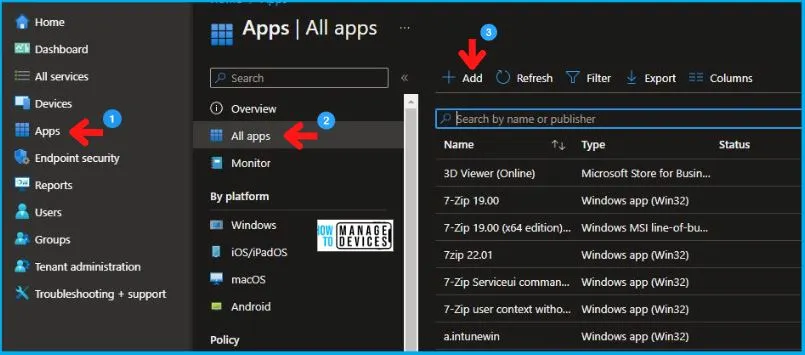
In the Select app type pane, under the Other app types, select Line-of-business app and click Select.
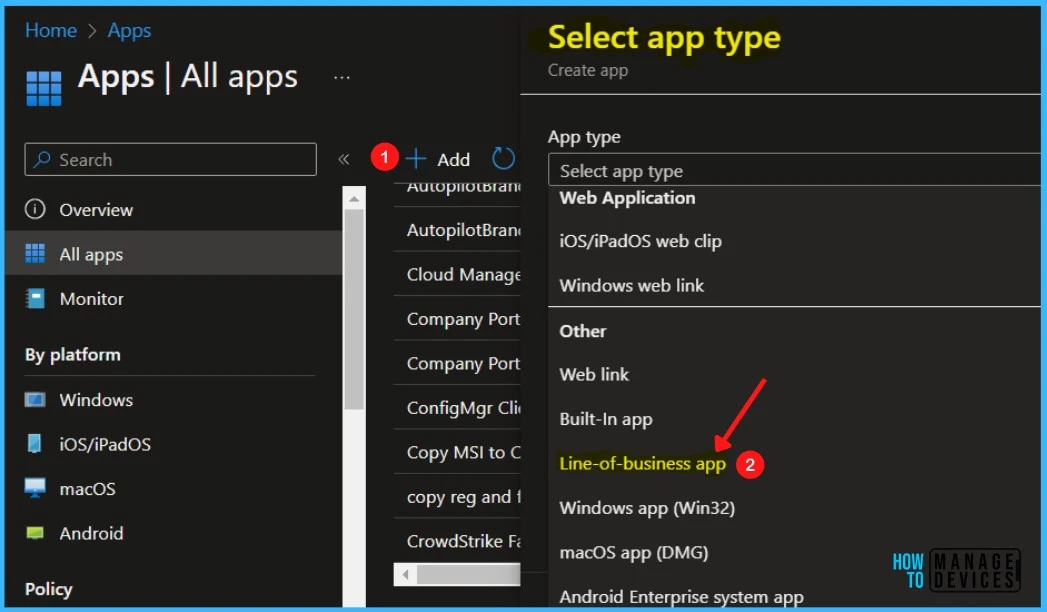
Now in the Add app pane, click Select app package file. Select the browse button. Then, select the downloaded application MSI file. Once you select the app file, The app details appear with Name, Platform, Size, and context. When you’re finished, select OK on the App package file pane.

Enter the Name of the App (For Example, Cisco Jabber), and Enter the description of the app. Enter the Publisher name – Cisco and Command-line arguments – Optionally, enter any command-line arguments you want to apply to the .msi file when it runs.
Also, refer to the below table for better understanding settings that we implemented during this phase of the Cisco Jabber Assignment:
| Name | Publisher | App Install Context | Ignore App Version |
|---|---|---|---|
| Cisco Jabber | Cisco | Device | No |
- App installs context – Select App install context as Device. This specifies the install context to be associated with this app. For dual-mode apps, select the desired context for this app. For all other apps, this is pre-selected based on the package and cannot be modified.
- Ignore app version – Select Yes for apps automatically updated by the app developer (such as Google Chrome, and Zoom).
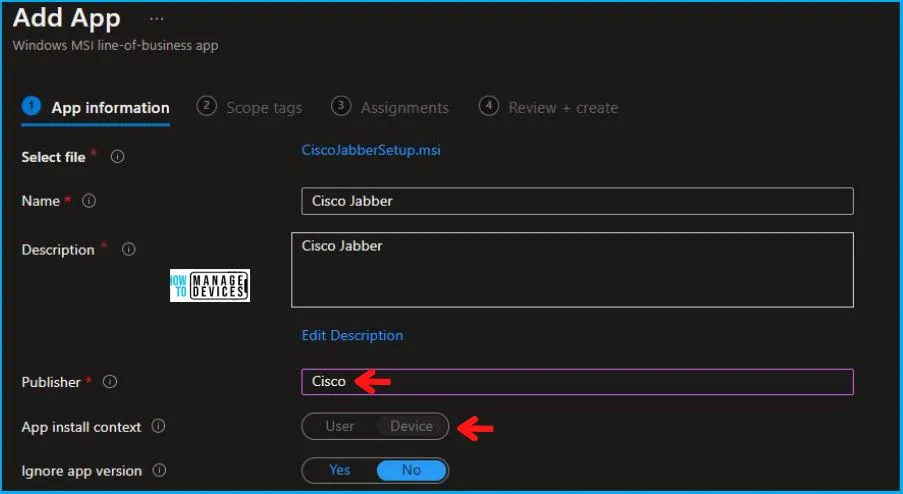
Also, Upload an icon for the app by scrolling down the same page. When users browse the company portal, the app displays this icon. You can provide additional information about the application in this section and click Next.
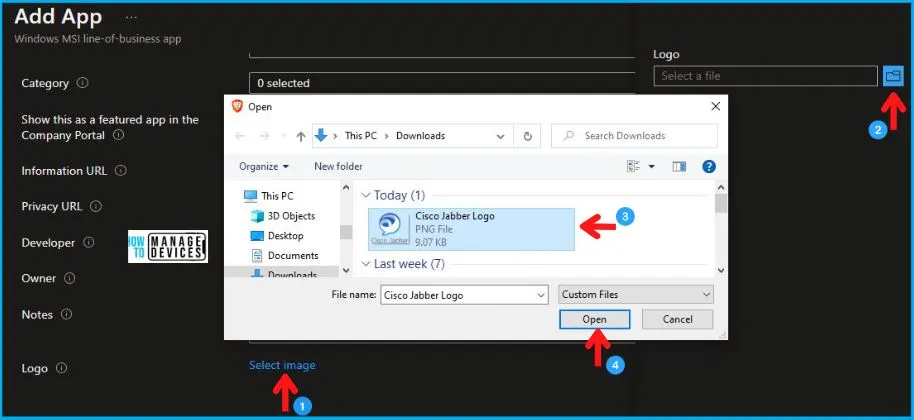
Scope tags are filtering options provided in Intune to ease the admin jobs. In the scope tag section, you will get an option to configure scope tags for the application. Click on Next.
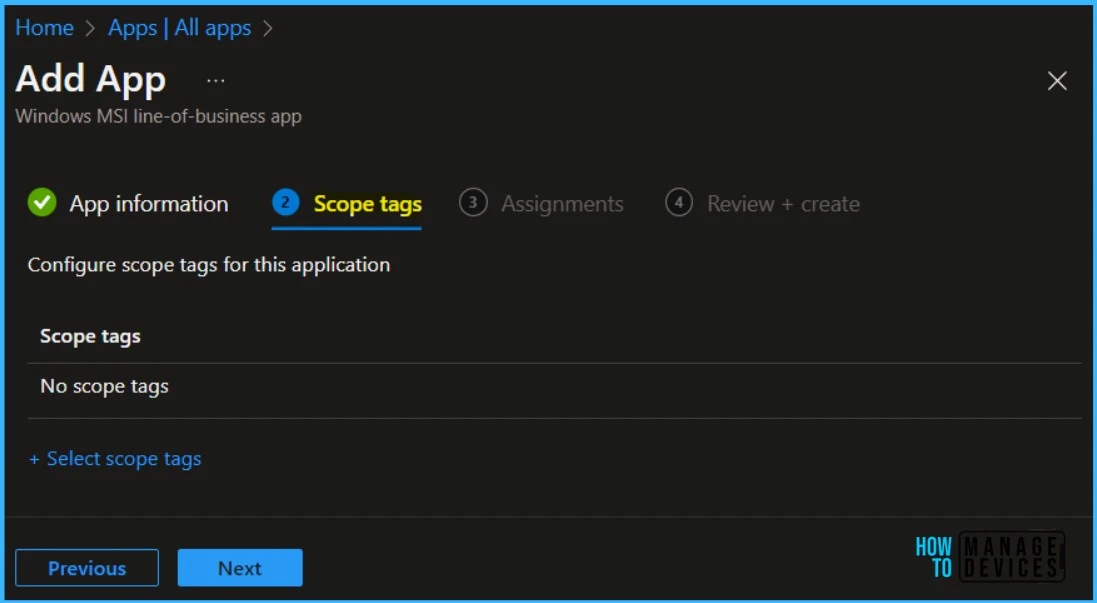
Under Assignments, In Included groups, click Add groups and then choose Select groups to include one or more groups to which you want to deploy Cisco Jabber, Click Next to continue.
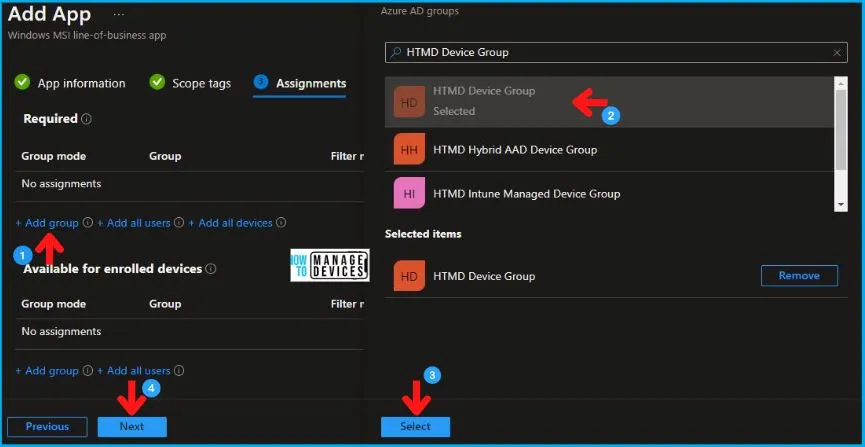
During the application creation process, you will see the details you provided. You can add the app to Intune by reviewing your settings and selecting Create.
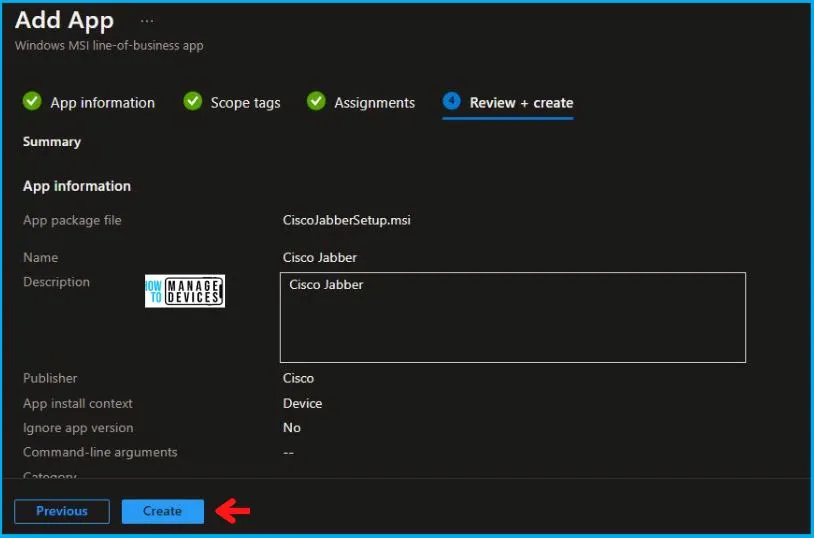
You will see the status Uploading is in progress, when will it be completed? The speed of the internet connection and the size of the application determine how long it takes.
We recommend waiting a while for the upload process to complete, and you can check the progress by clicking on the Notifications icon. You will receive the status “Upload finished” once the package has been uploaded and finished.
Monitor Cisco Jabber Deployment from Intune Portal
Your groups will receive deployed applications when the devices check in with the Intune service. The policy applies to the devices.
Now, when you log into the machine on which you deployed Cisco Jabber, open the Company Portal, go to the settings tab, and click on Sync, as shown below to synchronize it manually.
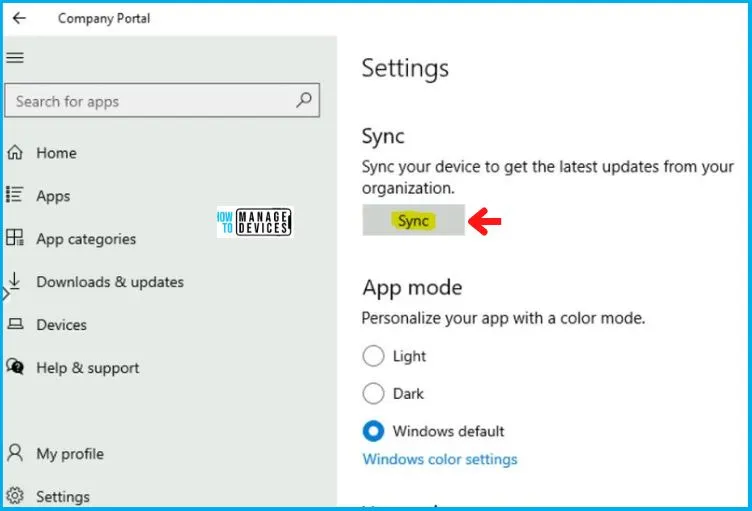
During the installation of an application, select the application, then select Monitor, where you can check the device and user check-in status. You can view additional details by clicking on the Device install status or User install status links.
The application targeted a group of devices, showing the status Installed successfully. You can track the details for further deployment progress from here.
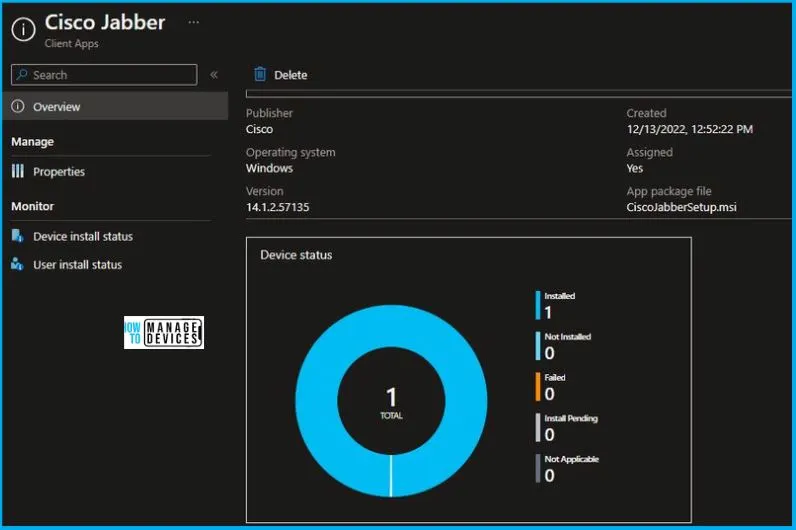
Track Cisco Jabber Deployment from Windows Registry
All the information can be easily tracked using the registry for tracing deployment issues. LOB app deployment details can be checked from the following registry path HKEY_LOCAL_MACHINE\SOFTWARE\Microsoft\EnterpriseDesktopAppManagement.
There will be two sub-keys corresponding to the
- system SID (all zeros) [will list all device context MSI deployments]
- user SID [will list all user context MSI deployments]
Under System or user subkeys, you will find the MSI app deployments from Intune listed using the MSI Product ID of the package. More you can check the detailed post from Joy on how you can troubleshoot Intune app deployment issues using the Windows 10 or 11 registry and events.
Author
Abhinav Rana is working as an SCCM Admin. He loves to help the community by sharing his knowledge. He is a B.Tech graduate in Information Technology.
